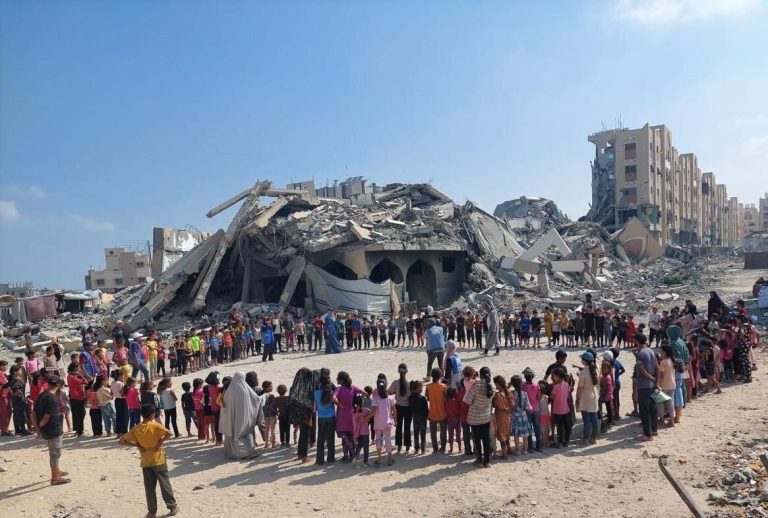The ongoing humanitarian crisis in Gaza has inflicted severe suffering on children and adolescents, subjecting them to experiences no young person should ever have to face. In response to this urgent situation and to support global efforts aimed at ensuring access to quality education and mental health services for all children, Education Cannot Wait Education Cannot Wait (ECW) has announced a First Emergency Response grant of US$2 million aimed specifically at supporting Gaza. This new funding effort raises the total ECW investment in the State of Palestine to about US$36 million.
Grant Details
This rapid-response grant, designed to be implemented over 12 months, will be managed by the Norwegian Refugee Council (NRC) as part of its ongoing Better Learning Programme in Palestine. This initiative seeks to enhance learning conditions for children and adolescents residing in Gaza, where the educational landscape has been severely disrupted.
Current Educational Landscape
Since the escalation of hostilities in early October 2023, a staggering 625,000 children enrolled in schools throughout Gaza have found themselves without access to education. Furthermore, reports from the United Nations indicate that more than 370 schools have suffered damage due to ongoing attacks, further exacerbating the crisis.
Mental Health Needs
Even prior to the recent violence, an estimated 800,000 children—representing three-quarters of Gaza’s entire child population—had already been identified as needing crucial mental health and psychosocial support. The necessity for these services has become even more pressing in light of the ongoing conflict.
Call to Action
“2.2 million Palestinians in Gaza are currently facing an unprecedented humanitarian catastrophe, living under inhumane conditions. The level of violence experienced today is unparalleled, resulting in widespread starvation, famine, and disease. The despair and lack of resources have led to a complete breakdown in the lives of children and adolescents. We urgently call upon world leaders to endorse diplomatic efforts aimed at ensuring the unconditional release of all hostages, to establish a lasting humanitarian ceasefire, and to provide safe, unimpeded access for humanitarian aid.
Furthermore, we urge adherence to international humanitarian law by all parties involved and advocate for a political solution that fosters peace. While we work towards these objectives, we are committed to investing in the continuation of education and providing mental health and psychosocial support for the young people of Gaza. Our goal is to alleviate their suffering and instil a sense of hope amidst these dire circumstances,” stated Yasmine Sherif, Executive Director of Education Cannot Wait, which serves as the Global Fund for Education in Emergencies and Protracted Crises within the United Nations.
Ongoing Violations
Reports from the United Nations indicate rampant violations of human rights and humanitarian law affecting children in Gaza. Tragically, hundreds of girls and boys are reportedly killed or injured each day. “At this moment, the Gaza Strip has become the most dangerous place on the planet for children,” noted UNICEF.
A Sustainable Future for Children
“The children of Gaza are enduring unimaginable horrors. The toll on young people has been catastrophic, particularly for those who have already lived through multiple conflicts, leaving many dead, injured, or orphaned. This grant from ECW is a crucial first step in restoring mental health and educational services. However, it represents merely a drop in the ocean of needs that exist in Gaza. The children and youth who have suffered so greatly during this unprecedented conflict cannot be overlooked—they will require sustained support for many years to come, and NRC is committed to providing it. We implore funders to prioritise the needs of children in Gaza to safeguard their futures,” remarked Jan Egeland, Secretary General of NRC.
Continued Support from ECW
Since 2019, ECW has been providing ongoing financial support for education in the State of Palestine, including a previous US$10 million First Emergency Response grant announced in November 2023.


